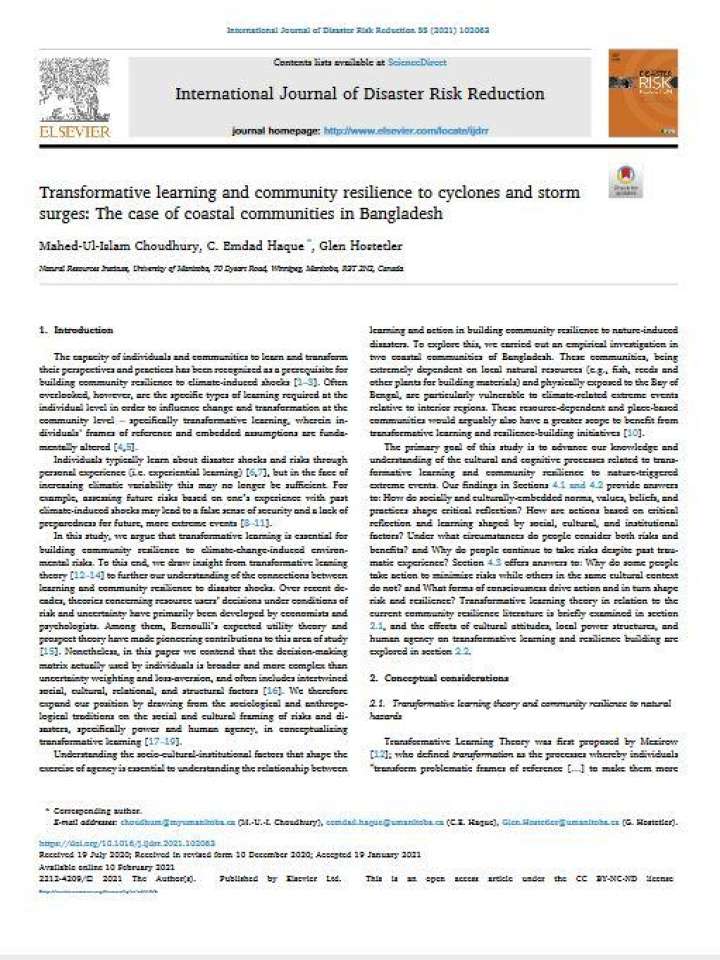Transformative learning and community resilience to cyclones and storm surges: The case of coastal communities in Bangladesh
In this study, the authors argue that transformative learning is essential for building community resilience to climate-change-induced environmental risks. To this end, they draw insight from transformative learning theory to further our understanding of the connections between learning and community resilience to disaster shocks.
In this paper, the researchers contend that the decision-making matrix actually used by individuals is broader and more complex than uncertainty weighting and loss-aversion, and often includes intertwined social, cultural, relational, and structural factors. They therefore expand their position by drawing from the sociological and anthropological traditions on the social and cultural framing of risks and disasters, specifically power and human agency, in conceptualizing transformative learning.
Evidence from Bangladesh's coastal communities reveals that both cultural and structural factors profoundly affect disaster-risk-reduction behavior. Future policy formulation should therefore pay serious attention to removing some of the structural constraints and addressing individuals' cognitive barriers for change and transformation in order to build community resilience to disaster-shocks.
Explore further
